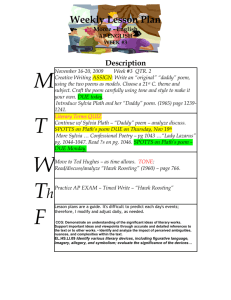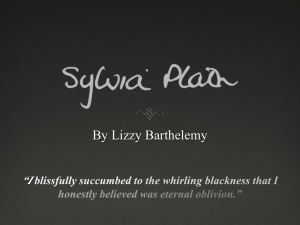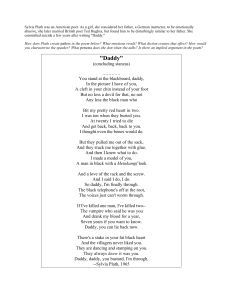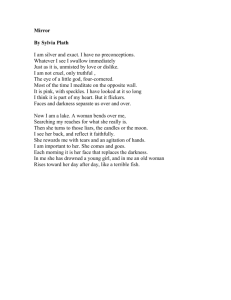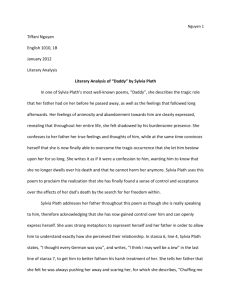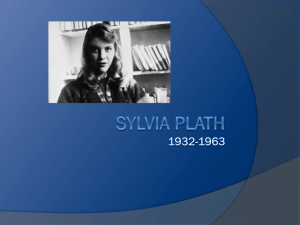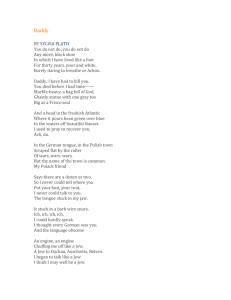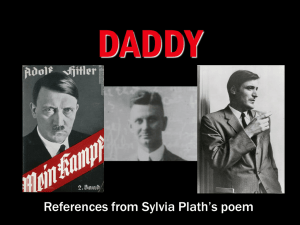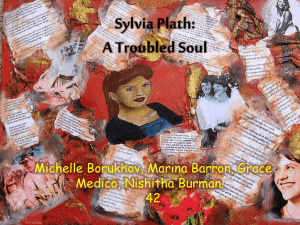Confessional Poetry
advertisement
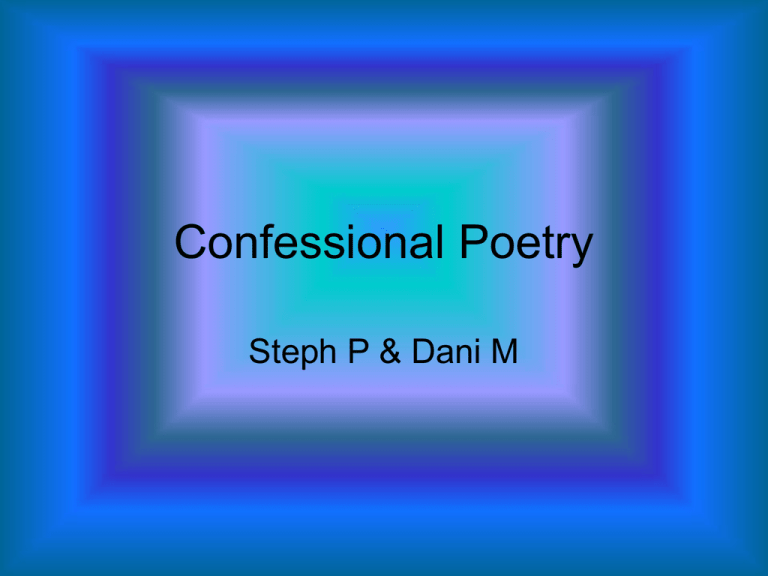
Confessional Poetry Steph P & Dani M Definition • The genuine strength of confessional poets, combined with the pity evoked by their high suicide rate, a romantic confusion between poetic excellence and inner torment • Berryman, Plath, Sexton all committed suicide Berryman Definition cont. • Confessional poetry is a type of lyric and narrative verse • It deals with intimate experiences and facts of poets own life Plath Family Elements and Style • Private experiences with feelings about death, trauma, depression, and relationships were addressed in this type of poetry • “I” is used more than “you” Sylvia Plath Daddy You do not do, you do not do Any more, black shoe In which I have lived like a foot For thirty years, poor and white, Barely daring to breathe or Achoo. Daddy, I have had to kill you. You died before I had time-Marble-heavy, a bag full of God, Ghastly statue with one gray toe Big as a Frisco seal Daddy The first two stanzas of the poem “Daddy” by Sylvia Plath are simple and sound more like a strange nursery rhyme than an angry vision of her father. The rhyme scheme in “Daddy” lulls the reader into a hypnotic state and the language is free from the kind of dark imagery and terms in the poem. This nursery rhyme’s innocence is destroyed with the images and language of Nazism and several references to horrible wars. Although the reader of the poem gets the impression of the “daddy” depicted in the poem, he does not exist outside of images of men from history or historical photographs. Sylvia Plath’s father Baby Picture Anne Sexton It's in the heart of the grape where that smile lies. It's in the good-bye-bow in the hair where that smile lies. It's in the clerical collar of the dress where that smile lies. What smile? The smile of my seventh year, caught here in the painted photograph. It's peeling now, age has got it, a kind of cancer of the background and also in the assorted features. It's like a rotten flag or a vegetable from the refrigerator, pocked with mold. I am aging without sound, into darkness, darkness. Anne, who are you? I open the vein and my blood rings like roller skates. I open the mouth and my teeth are an angry army. I open the eyes and they go sick like dogs with what they have seen. I open the hair and it falls apart like dust balls. I open the dress and I see a child bent on a toilet seat. I crouch there, sitting dumbly pushing the enemas out like ice cream, letting the whole brown world turn into sweets. Anne, who are you? Merely a kid keeping alive. Baby Picture • Her poem is a representation of the depression and self doubt as well as torment of her existence that she has experienced in her own life. • The last line of her poem is possibly the most powerful in the entire work. It shows her raw, intense confusion about who she is and how she is possibly going to make it in what she most likely considered the cruel game of life Baby Picture Sources • http://typesofpoetry99.blogspot.com/2009/ 03/american-confessional-poetrymovement.html
